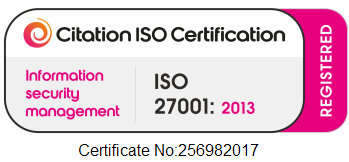What is Corporate Catfishing?
Have you ever come across a job offer that seemed just a little too perfect? Welcome to the world of corporate catfishing – a deceptive practice in the recruitment sector where false information or misleading tactics are used to attract job seekers. Much like personal catfishing, where people present fake personas online, corporate catfishing involves companies or recruiters fabricating details to lure unsuspecting professionals.
A recent Muse Shift Shock Survey found that 80% of employees say it’s acceptable to leave a new job before six months if it doesn’t live up to your expectations. While a study from Resume Genius’s Misrepresentation in Hiring Practices Report, revealed that 70% of hiring managers have lied to job candidates during the recruitment process! After surveying over 600 hiring managers, the results showed that the primary reason they lie is pressure to meet immediate hiring demands and protect company interests, with 35% admitting they frequently engage in this behaviour.
In an era where job hunting has largely shifted online, this phenomenon has become increasingly prevalent, making it critical for job seekers and genuine employers to stay alert.
Signs of Corporate Catfishing
There are multiple red flags to look out for when you job hunting or to avoid if you’re an employer trying to improve your recruitment process. Overly perfect job descriptions, with large six-figure salaries for entry-level responsibilities, unlimited annual leave or endless perks can be a sign of corporate catfishing. If it feels too good to be true it probably is!
Lack of transparency is a key sign of corporate catfishing. If a job ad is missing important details like the company’s location or team size, or if the application form leaves out critical information, it’s a clue that the organisation may not be entirely honest.
We’ve all come across fake recruiter profiles on LinkedIn, but sometimes companies create these profiles to advertise jobs and keep HR’s inbox from getting flooded with irrelevant applications. However, if a recruiter’s LinkedIn profile seems new or lacks connections, proceed with caution or contact the company directly.
Have you ever been asked to complete an assessment before arranging a preliminary interview? Or have you been rushed into accepting a job offer by a Hiring Manager? Being given unrealistic hiring timelines can be a tell tale sign of corporate catfishing. Legitimate employers allow candidates to carefully review and consider contracts and terms before asking for a final decision.

Why Corporate Catfishing Happens
Various factors, both intentional and circumstantial, can contribute to the rise of corporate catfishing. Understanding these reasons can help job seekers identify red flags and allow employers to avoid making these mistakes too.
High Competition for Talent
To stand out, some companies resort to exaggerating job roles, perks, and company culture. For example, a role advertised as offering “unlimited vacation days” might sound appealing, but in reality, such perks may come with strict caveats or rarely be utilised. While not always intended to deceive, these tactics can create false expectations, leaving candidates disappointed or frustrated when the reality doesn’t match the promise.
Recruitment KPIs
Recruiters are often tasked with meeting performance metrics or Key Performance Indicators (KPIs), such as filling roles quickly or generating a high volume of applications. This pressure can lead some to cut corners by embellishing job descriptions or misrepresenting company values to attract more applicants.
For instance, a recruiter might highlight “remote work opportunities” in a job posting, even if remote work is limited or conditional. The emphasis on hitting targets can create a quantity-over-quality mindset, where the focus shifts from finding the right candidate to simply filling a vacancy as quickly as possible.
Exploiting Vulnerabilities
Individuals who are unemployed, underemployed, or urgently seeking a career change are prime targets for corporate catfishing. These job seekers may be more willing to overlook red flags, such as vague job descriptions or rushed hiring processes, out of eagerness to secure a position.
For recruiters working within legitimate companies, this exploitation often manifests as playing on candidates’ excitement. A role might be presented as a “once-in-a-lifetime opportunity” or as having a fast-track hiring process, urging candidates to commit before asking too many questions. This approach leaves job seekers vulnerable and can damage trust in the recruitment process as a whole.
The Impact of Corporate Catfishing on Employers
Corporate catfishing can have serious consequences for companies, often causing more harm than the short-term benefits they might gain from deceptive recruitment tactics. While the intention might be to attract talent quickly or stand out in a competitive market, the long-term repercussions can be damaging to both reputation and operations.
One of the most significant impacts of corporate catfishing is the erosion of employer branding. A company’s employer brand is crucial for attracting top talent. Job seekers want to work for organisations that demonstrate honesty, transparency, and respect for employees. When a company engages in corporate catfishing, it sends a message that it prioritises short-term gains over ethical behaviour, deterring high-quality candidates who value integrity.
Other impacts may include the loss of candidate trust, meaning candidates may begin to question whether the company is honest in other areas, such as job performance expectations, growth opportunities, or workplace culture. Exaggerated claims or false promises can lead to misalignment of expectations and dissatisfaction, frustration, ultimately resulting in higher turnover rates.

What Employers Can Do to Prevent Falling For Corporate Catfishing Tactics
Transparency is the cornerstone of ethical recruitment. Candidates value honesty and clear communication, and providing accurate information about job roles and company culture can help build a strong foundation of trust.
Clearly outline the responsibilities, qualifications, compensation, and benefits associated with the role. If there are specific conditions – like hybrid work arrangements or probation periods – make sure they’re stated upfront.
Likewise, every job comes with its own set of challenges, and being honest about them can actually attract the right candidates. Candidates often want to know what working at a company will really feel like. Use your careers page or social media channels to showcase authentic glimpses of your workplace, team events, and employee testimonials.
One way to prevent corporate catfishing is by ensuring your recruitment process is conducted through credible and verified channels. This approach minimises the risk of fraudulent or misleading practices while boosting your credibility. Use trusted platforms like LinkedIn, Indeed, or niche job boards relevant to your industry. Reputable platforms often have strict guidelines for job postings, which helps maintain professionalism and trustworthiness.
Employer branding isn’t just about marketing—it’s about showcasing your company’s values, mission, and employee experience in a genuine way. Keep candidates informed at every stage of the recruitment process. Acknowledge applications, provide updates, and offer constructive feedback when possible. When candidates feel respected and valued, it reinforces trust in your organisation and brand.
How Recruitive Can Help?
Leveraging the right tools can make recruitment more efficient and trustworthy while minimising the risk of misrepresentation.
- Implement Applicant Tracking Systems (ATS)
Using an ATS ensures a structured and transparent hiring process. Candidates can track the status of their applications, which reduces ambiguity and builds confidence in your recruitment practices. - Offer Video Introductions or Virtual Tours
In the digital age, consider offering video introductions from team leaders or virtual tours of your workplace in your onboarding packs. These tools give candidates a more personal, authentic connection to your company and reduce scepticism about your work environment.




Comments are closed